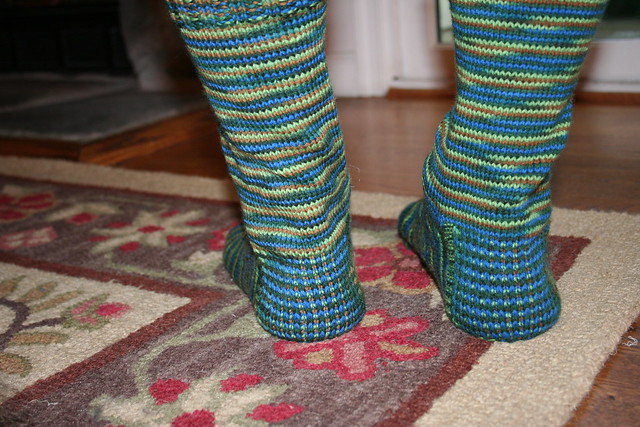Words for Halloween, November and related things in Celtic languages.
| Proto-Celtic | *samonios, *samoni- = assembly, (feast of the) first month of the year |
|---|---|
| Gaulish | samoni- = assembly, (feast of the) first month of the year |
| Old Irish (Goídelc) | samain [ˈsaṽinʲ] = Halloween, November, All Saint’s Day, All Hallows, Samhain |
| Middle Irish (Gaoidhealg) | samain, samḟuin = first November, the festival held on that date, All Saints’ Day, All Hallows idchi samna = the eve of samain |
| Irish (Gaeilge) | Samhain [sˠaunʲ/sˠəunʲ/ˈsˠãuwənʲ] = Halloween, November, All Saint’s Day, All Hallows, Samhain Mí na Samhna = (month of) November Oíche Shamhna = Halloween Lá Samhna = first November, All Hallows Lá Sean-Samhna = 12th November |
| Scottish Gaelic (Gàidhlig) | Samhain [ˈsãũ.ɪn̪ʲ] = All Saints’ Day, All Souls’ Day An t-Samhain [ən̪ tãũ.ɪn̪ʲ] = November Oidhche Shamhna = Halloween bó-Shamhna = Halloween cow (cow killed at Halloween for a winter supply of beef) samhnag [sãũnag] = Halloween bonfire samhnair [sãũnɛrʲ] = Halloween guiser/mummer |
| Manx (Gaelg) | Sauin [ˈsoːɪnʲ] = November, Hollantide Souney = All Hallow’s Day, Hollantide Day Laa Souney = November Mee Houney = November Oie Houney = All Hallow’s Eve, Hallowe’en, Hollandtide Eve, Hop tu Naa veih Sauin gys Boaldyn = long-winded (from Samhain to Beltane) cro souney = horse chestnut |
Etymology: from the Proto-Indo-European *sem- (together, one), or from the Proto-Celtic *samo- (summer) [source].
| Old Irish (Goídelc) | callan = calends |
|---|---|
| Middle Irish (Gaoidhealg) | callann = calends, first day of the month |
| Irish (Gaeilge) | caileann = calends Lá Caille = New Year’s Day |
| Scottish Gaelic (Gàidhlig) | cailindha = calends (of a month) |
| Manx (Gaelg) | Caillyn = calends |
| Middle Welsh (Kymraec) | kalan = first day of the year, New Year’s day, first day of each month, calends Kalan Gayaf = All hallows’ day, All Saints’ day, first of November |
| Welsh (Cymraeg) | calan [ˈkalan/ˈkaːlan] = first day of the year, New Year’s day, first day of each month, calends Calan Gaeaf = All hallows’ day, All Saints’ day, first of November nos Galan Gaeaf = Halloween calannig [kaˈlɛnɪɡ/ˈklɛnɪɡ] = gift given at New Year, (Christmas) present |
| Middle Cornish (Cernewec) | calan = the calends, first day of the month Calan gauav = first November Deu halan gûav = All Saints’ Day, the calends of winter Dydh Calan = New Year’s Day |
| Cornish (Kernewek) | kalan = calends, first of the month Kalan Genver = New Year’s Day Kalan Gwav = All Hallows Dy’ Halan Gwav = Saint Allan’s Day, Feast of Saint Allan (day of the first day of winter) Nos Kalan Gwav = Allantide (eve of the first day of winter) |
| Middle Breton | kaland = calends kal, kala = first day of the month kala-bloaz = first day of the year kala-goañv = first November kal-ar-goañv, Kalar goan, kal ar goañ = All Saints’ Day, first November |
| Breton (Brezhoneg) | kala = calends, first day of the month kala-bloaz = first day of the year kala-goañv, Kalan Goañv = first November |
Etymology: from the Vulgar Latin calandae (calends, the first day of the month) from the Latin kalendae (calends, the first day of the month), from calō (I call, announce solemnly, call out) from the Proto-Italic *kalēō from the Proto-Indo-European *kelh₁- (to call, summon) [source].
Words from calendar many languages, including English, come from the same roots, via the Latin calendārium (account book, debt book) [source].
Details of Celtic traditions associated with this time of year:
https://en.wikipedia.org/wiki/Samhain
https://ga.wikipedia.org/wiki/Lá_Samhna
https://en.wikipedia.org/wiki/Hop-tu-Naa
https://gv.wikipedia.org/wiki/Hop-tu-Naa
https://en.wikipedia.org/wiki/Halloween
https://cy.wikipedia.org/wiki/Gŵyl Calan Gaeaf
https://en.wikipedia.org/wiki/Allantide
Sources: Wiktionary, Am Faclair Beag, Online Manx Dictionary, Teanglann.ie, eDIL – Electronic Dictionary of the Irish Language, In Dúil Bélrai English – Old Irish glossary, Geiriadur Prifysgol Cymru, Gerlyver Kernewek, Dictionaire Favereau, TermOfis, English – ProtoCeltic WordList (PDF), Etymological Dictionary Of Proto Celtic






